Friedrich Merz's summer review: The country is on fire, but where is the Chancellor?

In his first government statement, the new Chancellor, Friedrich Merz, said: "People should already feel this summer: progress is being made." Merz had promised a hands-on mentality and wanted to take action from day one. Now it's summer. But the results are unsatisfactory; the big push hasn't materialized. Our editorial team has compiled an initial assessment that should concern the Chancellor. Because the problems in the country are getting bigger. An overview.
Asylum turnaround and crime: This is Friedrich Merz's summer assessmentLast week at the Guben border crossing into Gubin, Poland: not a single federal police officer was in sight. Instead, there were police officers on the Polish side, waving German cars out. A few meters further on, there was a post with military police. The government had also sent the army to the border with Germany. Here in Gubin, one feels like one is in a topsy-turvy world. And one senses that Friedrich Merz is in power.
In his first government statement, he said: "People should already feel this summer that progress is being made." So what is Merz's summer record on migration and crime?
Among other things, he and his CDU had announced an "asylum turnaround." At the beginning of May, the federal government increased border controls and ordered the rejection of asylum seekers. Since then, the Federal Police have registered 7,960 unauthorized entries and 6,193 outright rejections of migrants at Germany's borders.
Nevertheless, the border control network is riddled with holes. Every day, police officers symbolically raise their stop sticks on the bridge connecting Słubice and Frankfurt (Oder). At the Küstrin border crossing, however, there are no signs of any. The same is true in Guben and other towns. The Federal Police lacks sufficient personnel to permanently staff all checkpoints, let alone the "green border" along forests and rivers.
In any case, Merz's announcement is on shaky legal ground. The Berlin Administrative Court recently declared the deportation of three Somalis ordered by Federal Interior Minister Alexander Dobrindt (CSU) to be unlawful. Further lawsuits are looming.
By rejecting refugees, the government antagonized its neighboring countries. This culminated, among other things, in Poland's decision to take the largely symbolic step of controlling its border with Germany.
In fact, the number of asylum applications has declined sharply, but this had already happened last year under the traffic light coalition government. This was primarily due to other countries, especially on the so-called Balkan route, closing their borders. Meanwhile, Germany has lost none of its attractiveness due to its high social benefits. The path here has just become somewhat more difficult.
Nevertheless – even if not yet noticeable in the Merz sense – a lot is happening behind the scenes to secure the EU's external borders instead of its internal borders: For some time now, the heads of migration-critical states such as Italy, Denmark, and the Netherlands have been meeting. They want a significant tightening of EU asylum policy. Germany did not participate in these rounds. Friedrich Merz will now do so. This increases the chances of anchoring the so-called third-country solution in EU law: An asylum seeker should be brought to a state outside the EU, where their asylum application is examined. If rejected, the migrant must remain there.
And what about crime? The coalition agreement states: "We will fully exploit the scope provided by European and constitutional law to ensure the highest level of security for our citizens." The state wants to increase surveillance of its citizens.
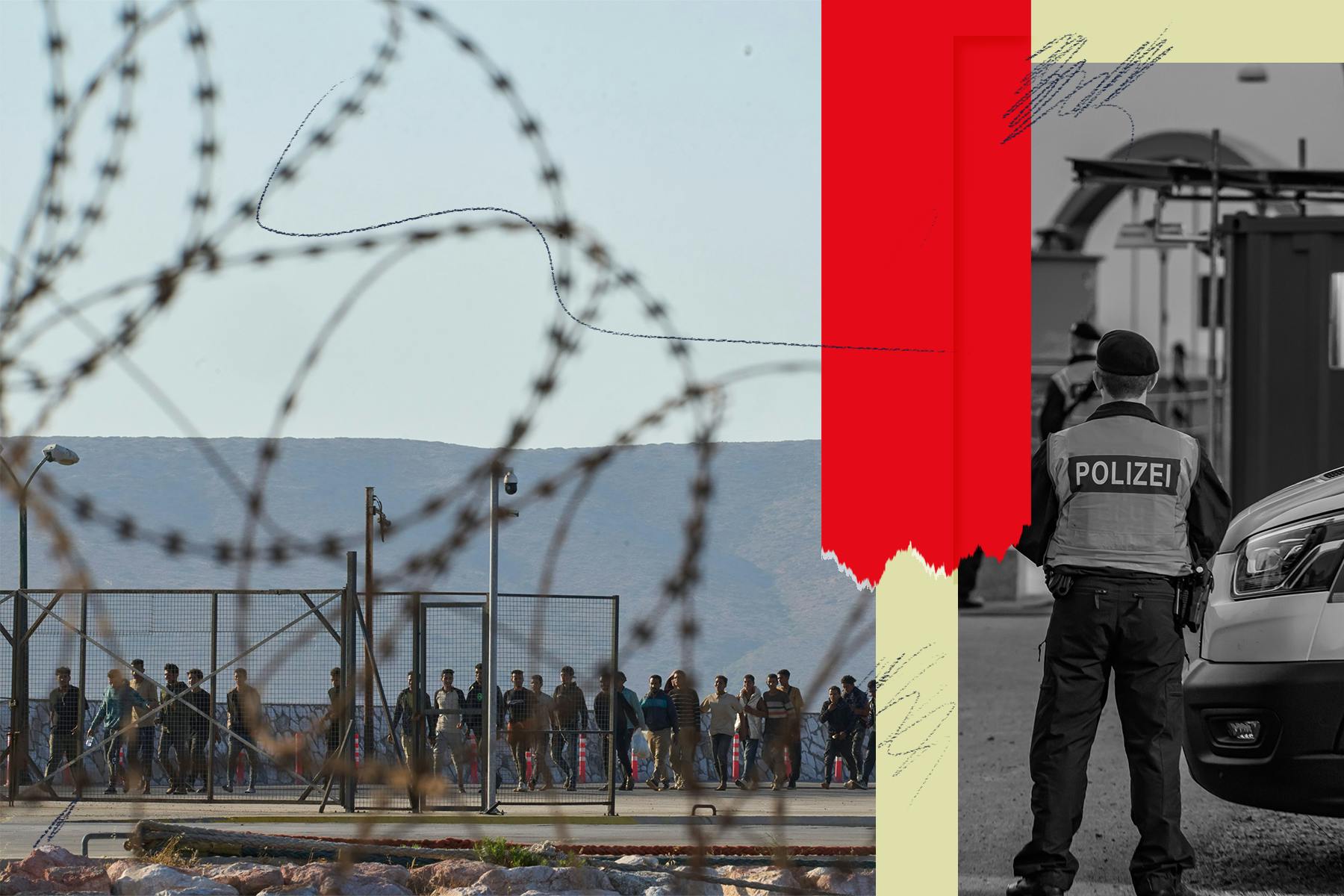
Interior Minister Dobrindt announced a significant expansion of the investigative powers of the security authorities. He wants to reintroduce the three-month retention of IP addresses. Such data retention already existed in Germany. However, it was suspended in 2017 because the European Court of Justice declared the then-current regulation to be contrary to European law. Police will also be able to eavesdrop on encrypted messaging services in the future (source telecommunications surveillance). Dobrindt also wants to combat political extremists – "no matter where they come from and no matter who the hatred is directed against." For this reason, in May he banned the Reich Citizens' Association Kingdom of Germany – after the agency had spent months preparing for his SPD predecessor.
Meanwhile, various police departments are reporting that everyday crime is roughly the same as last year, when the Federal Criminal Police Office (BKA) recorded 5.8 million offenses. At least there's not much evidence of increased safety on the streets this summer. (Andreas Kopietz)
Health: So far, only rising health insurance contributions have been noticeableThe federal government apparently doesn't feel much pressure to act on the healthcare system. This is likely felt most acutely by the more than 70 million people in this country who have statutory health insurance – roughly 90 percent of the population. They're feeling the impact on their accounts. Supplementary contributions will continue to rise, possibly reaching 20 percent next year. If something doesn't happen very soon, and that's not what's currently looking like happening, forecasts predict that the statutory health insurance deficit will reach four billion euros next year. Federal Finance Minister Lars Klingbeil (SPD) is only prepared to inject €2.3 billion into the system – as a loan that will eventually have to be repaid to the federal budget. At the same time, the federal government is making no attempt to exempt the health insurance funds from non-insurance-related benefits. These include expenses for recipients of citizen's allowance, spouses covered free of charge, and sick pay. If the coalition agreement remains in place, an expert panel will present its proposals for improving the situation in 2027. The government is postponing the nursing care reform until the future. Loans totaling two billion euros are also available for this social security system until 2026. A reform currently being worked on by the federal and state governments is expected to take effect after that. The two billion euros will still have to be repaid.
Hospitals are the largest cost factor in healthcare. Statutory health insurance spent more than 102 billion euros on these in 2024, almost twice as much as on medications. A hospital reform is intended to provide relief by reorganizing inpatient care. The pet project of former Federal Health Minister Karl Lauterbach (SPD) has been given a temporary reprieve by his successor, Nina Warken (CDU). It is intended to be made "suitable for everyday use," which includes, among other things, the ability of the federal states to make exceptions regarding which hospitals may remain in the network and which collaborations are possible.
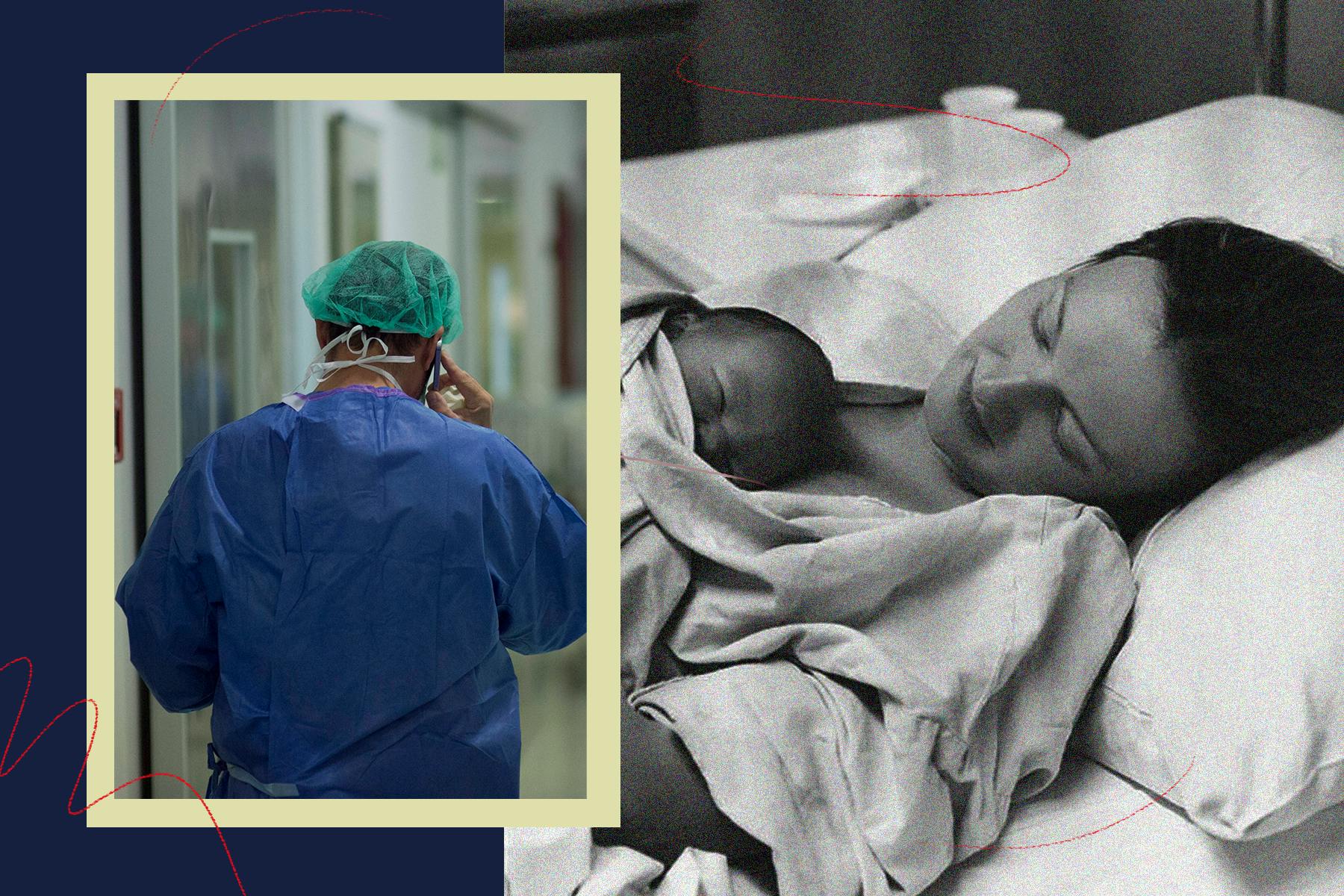
At least four billion euros are to be sent "in a timely manner" to the financially strapped hospitals to offset the deficits from 2022 and 2023. The money comes from the so-called special fund. The restructuring of the hospital landscape is estimated at 50 billion euros within ten years. According to the wishes of the federal states, 30 percent of the sum should be borne by those with statutory health insurance. (Christian Schwager)
Housing: Friedrich Merz wants to “build, build, build” – but the turbo is not firingAfter three years of a traffic light government, during which construction activity declined year after year, the construction industry placed high hopes in the new government led by Friedrich Merz. The coalition agreement , which was published one day before the federal election on April 4, was all the more eagerly awaited.
Much of it was already known: the rent control was to be extended, index-linked and short-term rentals were to be more strictly regulated, and the controversial Building Energy Act was to be abolished. Also announced was a "Construction Turbo" – a comprehensive package of measures designed to accelerate planning and approval procedures and stimulate new construction through simplified building procedures and type approvals.
In his inaugural speech in the Bundestag on May 14, however, Merz only mentioned the topic in passing: "Affordable housing primarily means: build, build, build," he said. He didn't mention any concrete measures. A few days later, at the Construction Industry Day in Berlin, he admitted: "We haven't written down anything concrete other than declarations of intent." At the same time, he said they wanted to "build more simply and in a more serial manner" – but here, too, he refrained from making any binding targets or funding commitments.
In the following weeks, the new chancellor remained noticeably quiet on housing issues, but Construction Minister Verena Hubertz (SPD) made headlines with her combative slogans: "Sometimes things have to go wrong." She announced that she would reduce construction costs by up to 40 percent using serial processes and modular construction, and that she would push through the construction boost "by force if necessary." She didn't reveal exactly how.
On June 18, the Merz cabinet passed the long-awaited package of measures to boost housing construction . According to these measures, commercial spaces will be converted to residential space more quickly in the future. So-called approval fictions also stipulate that building applications are automatically considered approved if they are not processed within a specified period. Building type E also introduces a long-planned construction standard intended to facilitate construction on existing buildings.
A promising package – but experts are already warning: Without binding implementation prospects, concrete timetables, a secure financing framework and urgently needed structural reforms in the administration, the announced measures risk coming to nothing.
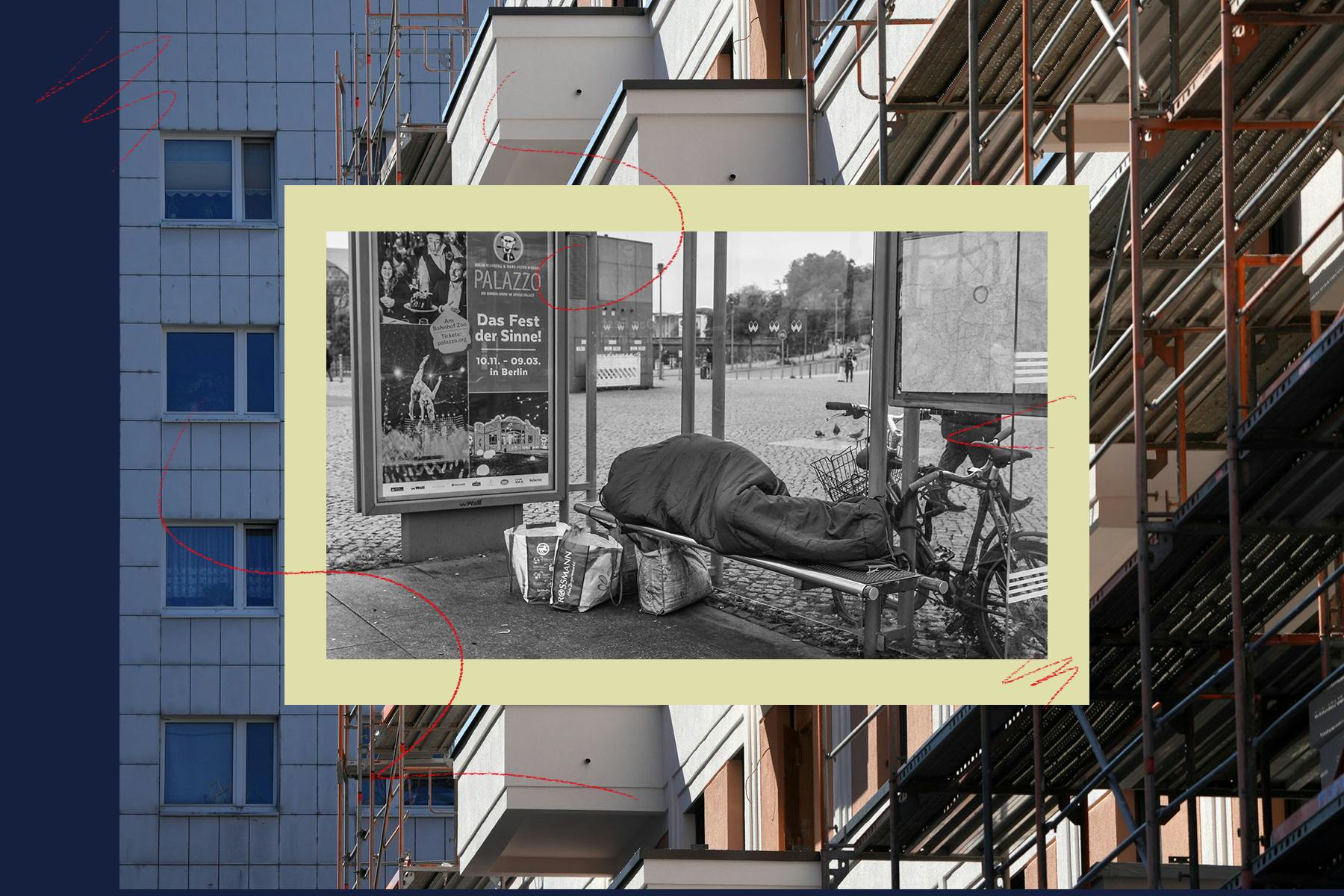
However, instead of following up on his promised reform promises with action, Merz is conflating rent and housing issues with the migration debate: In an ARD summer interview , he said it was unacceptable for the state to cover rents of "20 euros per square meter." A cap on rent payments for citizens' income support recipients was therefore "conceivable." This statement was met with widespread criticism: Merz was using a narrative that categorically blames citizens' income support recipients and migrants for the housing shortage – thus distracting from political failures.
Almost 100 days after taking office, Friedrich Merz's assessment is sobering: The announced housing construction boost has so far failed to deliver. The number of building permits continues to decline, investment volumes are shrinking—and whether the recently adopted measures will alleviate the construction crisis remains open.
Without concrete targets, binding financing commitments, and consistent implementation of the promised structural reforms, the ambitious project is nothing more than a symbolic effort—and the construction boost at the end is nothing more than an empty promise. (Yoko Rödel)
Traffic: Germany at a standstillTransport: That sounds like movement, the exchange of people and goods, mobility in a social sense and progress. Getting from A to B quickly and comfortably – by train to work, on the motorway on vacation, by bike or on foot to the shops. It's quite paradoxical, then, that transport policy is one of the areas where little has happened in a long time. While the first bridges crumbled and the railways began to weaken, people were gleefully scrimping. While the Chinese built an electric car industry, the Dutch perfected their cycling network, and the Scandinavians, true to Vision Zero, reduced the number of fatal collisions on the roads, little to nothing happened in Germany. Out of fear of voters and fear of industry. Or because of a lack of ideas and – when there was a good concept – money. It's not offending the new Federal Minister of Transport to predict that things will continue like this under him. This is not a personal criticism of Patrick Schnieder, who took office on May 6, 2025, as part of the CDU/SPD federal government.
The tall, reserved Christian Democrat from the Vulkaneifel region has so far only dealt with transport issues marginally – for example, when he served as mayor of a local authority. But this ministerial position, too, is traditionally filled with people from other fields. This is likely the intention – so that the railway can continue to muddle along undisturbed, the federal administration isn't overwhelmed, and no citizen is alarmed by innovations, even if they are technically justified.
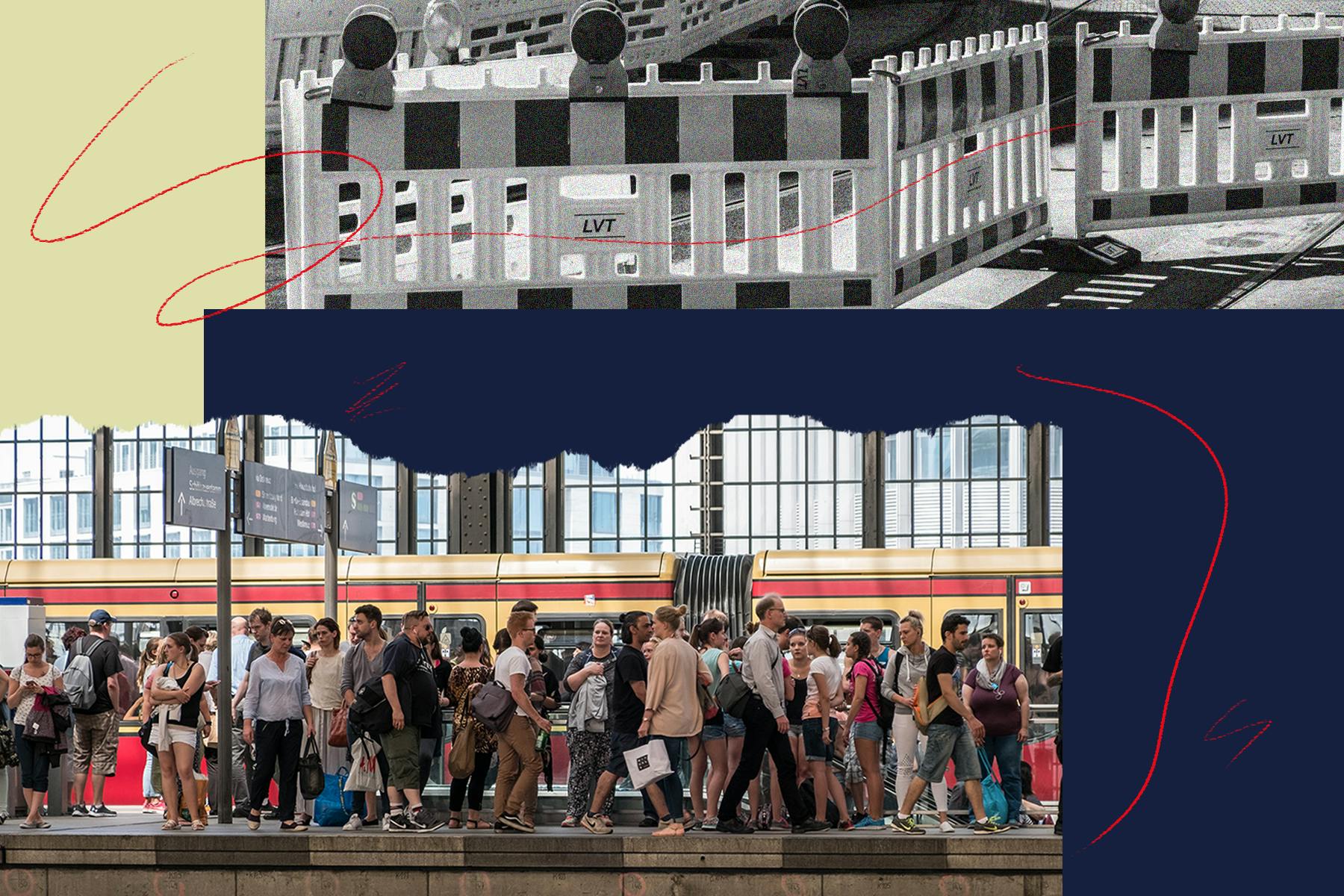
Certainly: The minister's friendly words when the General German Bicycle Club (ADFC) presented its bicycle climate test in June were met with praise in the transport transition scene. When the 57-year-old comments on the railway, he rightly notes that the place is pretty run down. The federal politician also correctly recognized that motorway bridges also need more attention than they received under his SPD and CSU predecessors, that procedures must be shortened and construction innovations promoted. So, in summing up the first two and a half months, it is important to note that Patrick Schnieder is asking the right questions. However, these are questions that have been heard many times before. However, there is no indication that they will finally be comprehensively answered in this legislative period, or that action will follow in key areas that could be interpreted as a turnaround. Want to bet that the railway company will stay as hypertrophic as it is?
And even if there really is significantly more money for infrastructure (the road sector is likely to be cut back), setting up even more construction sites would bring the country to a complete standstill. That's why the railway is already putting the brakes on.
Car and rail passengers will have to accumulate stress points for decades before the infrastructure truly improves. Who knows, perhaps more than 13 million people will lose their Deutschlandticket by 2026 because the federal government is leaving the states to finance it on their own. But that's traditionally been a side issue anyway.
Like global warming. After all, many citizens say: I'm a bit older, that doesn't interest me. Patrick Schnieder acknowledges the concerns of the aviation industry and wants to reduce the air travel tax. He also sends a message to fans of the combustion engine: there is no such thing as one-sided subsidies for electric cars; technological openness is the order of the day – even if that includes many questionable concepts.In the automotive world, federal transport ministers are primarily there to convey a specific message to reassure the many German drivers: Nothing will change. Even though anyone who occasionally drives on busy roads, jostling with trucks on the highway, knows: This can't last much longer. (Peter Neumann)
Economy: Much promised, hardly deliveredDuring and after the election campaign, Friedrich Merz placed great emphasis on easing energy prices, primarily through a significant reduction in the electricity tax, in order to indirectly curb inflation and strengthen citizens' purchasing power. His promise was clear: the electricity tax would be reduced to the European minimum of 0.1 cents per kilowatt hour (kWh) – instead of the current 2.05 cents per kWh. According to the Federal Statistical Office, inflation in June 2025 will be a low 2.0 percent. But this decline is hardly the work of the Merz government. It results primarily from external factors such as falling energy prices, not from targeted political measures. Core inflation, excluding energy and food, remains high at 2.7 percent. So far, only companies and agriculture have benefited from Merz's promise of a comprehensive electricity tax cut. Private households have missed out , as a general electricity tax cut for them was rejected. Instead, the government relied on smaller measures such as adjustments to the grid fee and gas storage surcharge. Germany is still a long way from truly stabilizing purchasing power for citizens.
What about tax relief? In the coalition agreement, tax relief was formulated vaguely and subject to funding. During the election campaign, the CDU promised tax relief for middle-income earners and high-achievers in order to reduce the tax rate to around 40 percent in the long term. A comprehensive tax reform is still pending. Concrete relief for middle-income earners is lacking, despite being clearly promised during the election campaign. Finance Minister Lars Klingbeil (SPD) is struggling with a budget shortfall of €144 billion until 2029. In response to an inquiry from the Berliner Zeitung, the Finance Ministry merely stated that discussions are still underway and no concrete statements are possible—a typical sign that the government is preparing a political retreat. The current balance is sobering: Big promises and widely announced tax relief have not yet been fulfilled. The promised strengthening of the middle class has so far existed mainly on paper. ( Liudmila Kotlyarova )
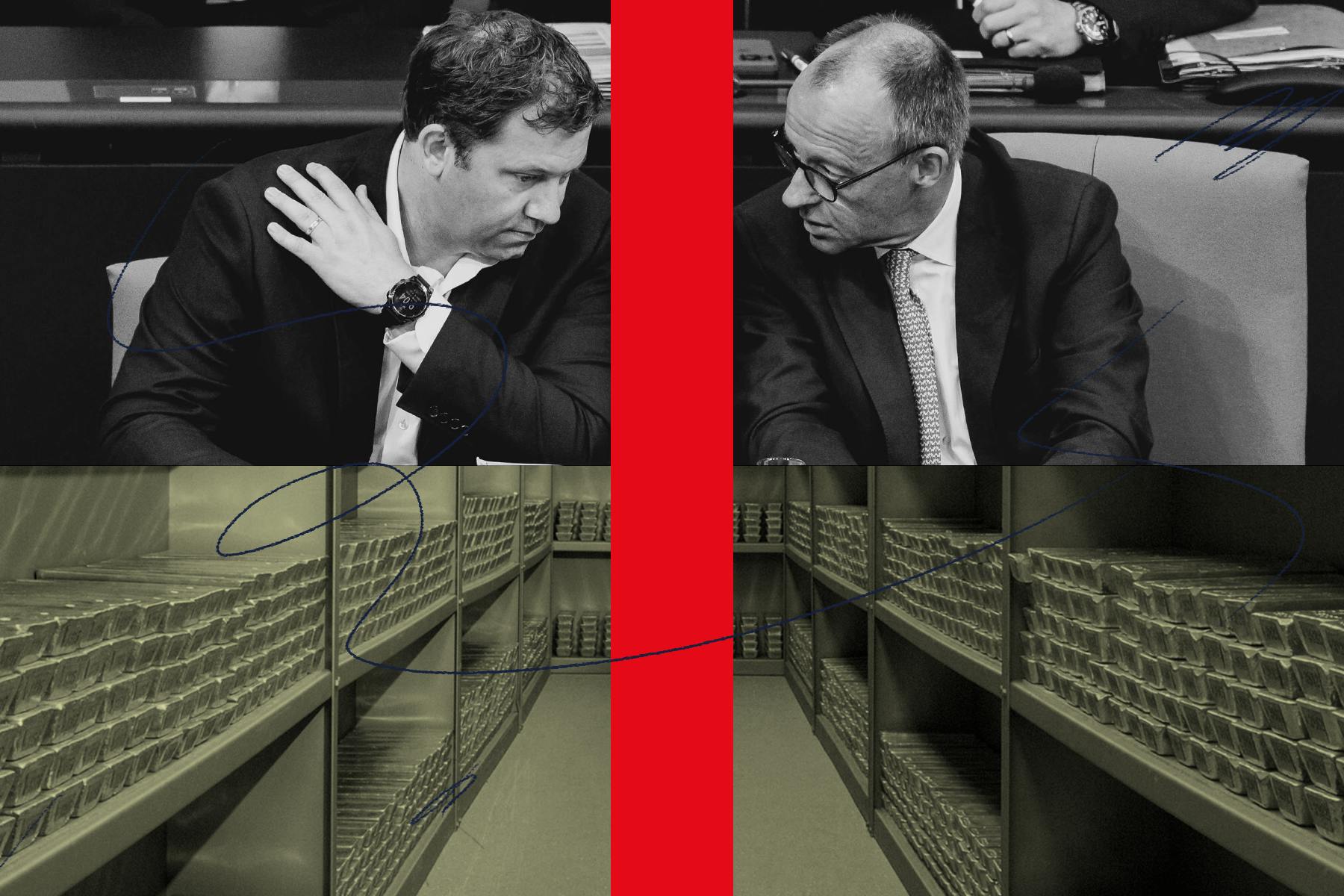
Budgetary discipline and sound fiscal policy were further campaign promises of the CDU. Despite the planned establishment of a special infrastructure fund, there should be no excessive new debt. However, these intentions were only stated in general terms in the coalition agreement, without a concrete limit on new debt. So far, new debt has grown significantly faster than promised. The special infrastructure fund, approved in March 2025, comprises €500 billion and is accompanied by a reform of the debt brake on defense spending. Concrete plans for how this debt will be reduced in the long term are still lacking. The sobering interim assessment: The government is far from delivering on its promised sound fiscal policy. Debt continues to rise, while clear strategies for consolidating or redistributing budget spending are lacking. ( Liudmila Kotlyarova )
Reducing bureaucracy and modernizing the state: Merz delivers the oppositeDuring the election campaign, he insisted that the "bloated bureaucracy in Berlin's government offices" needed to be addressed. The many federal commissioners were "creating more problems than they could ever solve." He was clear: With him as chancellor, there would be less bureaucracy and a leaner, more modern state.
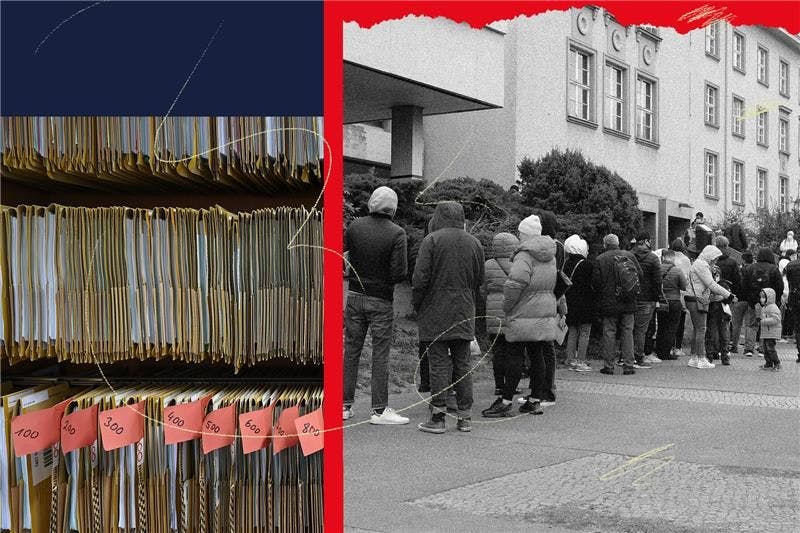
Merz suddenly understands bureaucracy reduction to mean more government jobs. 150 new civil servants are to work in the new Ministry for Digital Affairs and State Modernization (BMDS) alone, around 40 directly under Merz in the Federal Chancellery. New ministries are initially expensive – and amateurish. When setting up the BMDS in temporary premises in Berlin-Charlottenburg at the beginning of June, employees quickly procured "dishes from a nearby flea market" to ensure that meals were eaten in a respectful manner. Others brought coffee machines from home, among other things. The ministry spoke of a "hands-on mentality."
Digital Minister Karsten Wildberger (CDU) is supposed to modernize the state from Berlin . How is the digitization of employment offices supposed to work when the job centers all operate under the data protection laws of the federal states? Merkel and Scholz have already tried that in vain. How many more billions of euros must flow through the Online Access Act (OZG) so that lavishly paid IT consulting firms like Adesso, EY, and others can tinker with mindless and useless digital solutions for individual federal states? EY consultants collect daily rates of at least 1,500 euros – for results that have barely been visible so far. Your contact from now on: Karsten Wildberger. Otherwise, nothing has changed. While the housing benefit application can be submitted via smartphone, the office still uses faxes.
The situation is similar in Lars Klingbeil's (SPD) Finance Ministry. When asked whether the new finance minister already knew which regulatory reporting requirements pose a hurdle for banks, fintechs, and financial service providers and should possibly be abolished, Klingbeil replied: "I must also ask for your understanding that I haven't addressed every issue yet, but that will come, and it will come soon." The removal of fax machines in tax offices probably didn't play a major role in the coalition negotiations.
Good suggestions for state modernization come from outside. The "Capable State" initiative of publisher Julia Jäkel, former Federal Constitutional Court President Andreas Voßkuhle, and former federal ministers Thomas de Maizière (CDU) and Peer Steinbrück (SPD) are proposing leaner legislation. "It is not uncommon for it to only become apparent in practice that a law is dysfunctional, that its goals are not being achieved or are not being achieved quickly enough, or that the costs of implementation are significantly higher than expected," the final report states. Specifically, an "experimental clause" is proposed – allowing administrations to first test certain regulations in order to learn from them. Ideas that the Merz government has not come up with. (Lukas Kuite)
Energy policy and mobility transition: An exact copy of the traffic light"The energy policy of the failed traffic light coalition was a complete fiasco! The SPD, Greens, and FDP have all dropped out. We're getting back in." Friedrich Merz made tough statements and big announcements during the election campaign. When it comes to energy policy, the world is looking at Germany "with horror and astonishment." Under his leadership, Germany will no longer withdraw from any energy sources without having alternatives in the grid. The option of nuclear energy is also being kept open.
In fact, energy prices are considered one of the biggest weaknesses of Germany as a business location. According to an analysis by the comparison portal Verivox, Germany ranks fifth among the most expensive countries in the world for electricity. Taxes and grid fees, in particular, are driving up prices. Numerous associations warn with alarming regularity that their companies can no longer afford the enormously high energy prices.

A look at the present shows that Merz's much-heralded energy transition was likely nothing more than an empty promise designed to score big points in the election campaign. So far, the new federal government has been almost identically copying the energy policy of the "traffic light" coalition. According to the coalition agreement, the government wants to "utilize the full potential of renewable energies." New gas-fired power plants are to be built as a reserve for the expansion of renewables – all things that the "traffic light" coalition had already planned. Nuclear power, on the other hand, has long since been abandoned. "Our goal is permanently low, predictable, and internationally competitive energy costs," the coalition agreement continues. To achieve this, a systemic approach is being pursued through the interplay of the expansion of renewable energies, a power plant strategy, targeted and system-supportive grid and storage expansion, greater flexibility, and efficient grid operation. So far, however, there has been precious little sign of this. Even the promised reduction in electricity tax is initially only benefiting industry – private consumers, on the other hand, are left out in the cold. The reason is the "lack of money," said Merz. The new government had also announced the abolition of the highly controversial Heating Act (GEG, Building Energy Act) of the traffic light coalition. Instead, the GEG will be only minimally amended. "Nothing will change in the transition to clean heating systems, nor in the abandonment of fossil fuels," said the new Environment Minister Carsten Schneider (SPD). The abolition of the GEG, as declared in the coalition agreement, may sound decisive, "but that won't be a step backwards in the matter." Last but not least, there is the mobility transition, which poses such major problems for German car manufacturers. Merz repeatedly criticized the planned phase-out of combustion engines during the election campaign. He rejects purchase incentives for electric cars. A "subsidy race" achieves nothing; instead, better framework conditions are needed, such as lower corporate taxes and energy prices, as well as better charging infrastructure. And what about today? Apparently, the opposite day. Finance Minister Klingbeil (SPD) has passed a new law that provides for new and particularly high depreciation allowances and significant tax breaks for electric cars. The bottom line: Apparently, nothing the Merz government announces can really be relied upon.
(Flynn Jacobs)
Foreign policy: Expensive strategyFriedrich Merz was very vocal in his demands before he was in government. His Taurus ultimatum to Putin, which was intended to put pressure on the Russian president from the German opposition benches and embarrass Olaf Scholz, will still be remembered. In foreign policy, Merz portrayed himself as a big player and criticized Scholz for his fickleness, particularly with regard to Russia and the war in Ukraine. Admittedly, the new Chancellor takes foreign policy seriously. It is thanks to his new coalition that Annalena Baerbock is no longer in government – and that Johann Wadephul, a pragmatist and minister who acts in concert with the Chancellor, has taken over the Foreign Ministry. He is a Foreign Chancellor who seems to take foreign policy more seriously than domestic policy and wants to make Germany the leader of the EU again. In the field of foreign policy, Merz at least has a strategy. He wants to keep the EU and NATO together and not lose the support of the USA. He handled his first meeting in the White House with US President Donald Trump well, even if Merz's transatlantic successes essentially consist of keeping Donald Trump somewhat happy. At least there hasn't been any major catastrophe so far: The US is still a NATO partner, supports Ukraine, and has now promised to become more involved in the country.
But at what price? The support from European partners has come at a high price. Not only has Germany promised to invest more money in armaments, but the investments are also supposed to primarily benefit the USA. Whether this is truly a brilliant move is questionable. The current deals secure Ukraine's defense capability for a few months. In this respect, Friedrich Merz has given himself some breathing room. But nothing more. Broader policies, including diplomatic initiatives, are currently not in sight. In this respect, Chancellor Merz still has to prove in this area that he can go beyond just talking good talk and actually achieve success. ( Tomasz Kurianowicz)
Do you have feedback? Write to us! [email protected]
Berliner-zeitung




